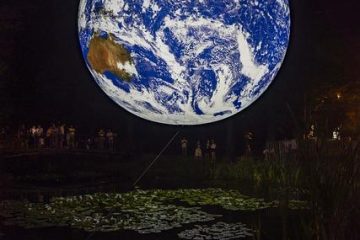As we embark on a journey through the fascinating realm of the Gaia hypothesis, we find ourselves at a critical juncture – the moment of conclusion. Delving into the intricate web of interconnected ecosystems, the Gaia hypothesis challenges us to explore the intricate balance between Earth and all its living organisms. Join us as we unravel the implications, insights, and implications that arise as we reach the culmination of this thought-provoking hypothesis. Let’s dive deeper into the tapestry of Gaia and uncover the revelations that lie within its concluding chapters.
Table of Contents
- Understanding the Essence of the Gaia Hypothesis
- Key Findings and Implications of the Gaia Hypothesis
- Challenges and Controversies Surrounding the Gaia Hypothesis
- Practical Applications and Future Directions for the Gaia Hypothesis
- Q&A
- In Summary
Understanding the Essence of the Gaia Hypothesis
Through the lens of the Gaia Hypothesis, the interconnectedness of all living organisms with the Earth itself becomes apparent. This theory, proposed by James Lovelock and Lynn Margulis, suggests that the Earth functions as a self-regulating system, akin to a living organism.
<p>**The Essence of the Gaia Hypothesis:**</p>
<ul>
<li>Emphasizes the Earth as a complex, self-sustaining entity</li>
<li>Highlights the delicate balance between lifeforms and the environment</li>
<li>Suggests that Earth and its inhabitants coevolve to maintain stability</li>
</ul>
<p>As we delve into the implications of this hypothesis, we uncover a profound respect for the planet's intricate web of life and the necessity of preserving this delicate equilibrium for the well-being of all living beings.</p>
Key Findings and Implications of the Gaia Hypothesis
In exploring the Gaia Hypothesis, a profound connection between organisms and the Earth itself emerges, challenging traditional views of the planet as a mere backdrop for life. The idea that the Earth functions as a self-regulating system, where living organisms play an integral role in maintaining environmental conditions favorable for life, opens up a new paradigm in our understanding of nature’s interconnectedness.
Implications of the Gaia Hypothesis extend beyond academia, sparking discussions on sustainability, conservation, and the importance of biodiversity. This holistic view calls for a reevaluation of our relationship with the environment, emphasizing the intimate link between human activities and the health of the planet. By recognizing the Earth as a dynamic, living system, we are prompted to rethink our stewardship of the natural world, highlighting the urgency of adopting practices that support ecological balance and resilience.
Challenges and Controversies Surrounding the Gaia Hypothesis
The Gaia hypothesis has long sparked intense debates and discussions within the scientific community, stirring up a whirlwind of challenges and controversies. One of the primary contentions surrounding this theory is the extent of Earth’s ability to self-regulate and maintain a delicate balance to support life. Critics argue that the notion of Earth as a self-regulating organism is overly anthropomorphic, attributing human-like characteristics to our planet.
<p>Moreover, the idea that Earth actively works to sustain life has faced skepticism due to a lack of concrete evidence supporting this claim. The hypothesis's holistic perspective on Earth as a single functioning entity also raises questions about the role of randomness and external factors in shaping the planet's ecosystems. Despite these criticisms, proponents of the Gaia hypothesis advocate for a more interconnected view of Earth and life, highlighting the intricate relationships between living organisms and their environment.</p>
Practical Applications and Future Directions for the Gaia Hypothesis
Exploring the Gaia Hypothesis opens up a world of possibilities for understanding the interconnectedness of ecosystems. By examining how organisms interact with their environment, researchers can uncover valuable insights into the delicate balance of nature. As we delve deeper into this fascinating concept, we begin to realize the implications it holds for conservation efforts and sustainable practices.
Looking ahead, the future of the Gaia Hypothesis points towards innovative solutions for environmental challenges. From bio-inspired technologies to ecosystem restoration projects, the principles derived from Gaia can guide us towards a harmonious coexistence with our planet. Embracing this holistic approach may pave the way for a more ecologically conscious society, where our actions are in sync with the rhythms of nature.
Q&A
**Q&A: Exploring the Gaia Hypothesis Conclusion**
Q: What is the Gaia Hypothesis all about?
A: The Gaia Hypothesis, proposed by scientist James Lovelock in the 1970s, suggests that the Earth functions as a self-regulating system, like a living organism, to maintain conditions suitable for life.
Q: How does the Gaia Hypothesis tie into environmental science?
A: The Gaia Hypothesis offers a unique perspective on how Earth’s ecosystems interact and influence each other, highlighting the delicate balance necessary for life to thrive.
Q: What are some key arguments supporting the Gaia Hypothesis conclusion?
A: Proponents of the Gaia Hypothesis point to the intricate relationships between living organisms and their environment, emphasizing the interconnectedness of all life on Earth.
Q: Can the Gaia Hypothesis shape our approach to environmental conservation?
A: By viewing Earth as a complex, integrated system, the Gaia Hypothesis encourages us to consider the long-term effects of our actions on the planet and promotes sustainable practices for the well-being of all life forms.
Q: What are some criticisms of the Gaia Hypothesis conclusion?
A: Critics argue that attributing Earth’s complex processes to a single, self-regulating entity may oversimplify the intricacies of environmental systems and overlook the significant role of randomness and evolution in shaping ecosystems.
Q: How can we apply the principles of the Gaia Hypothesis in our daily lives?
A: Understanding the interconnectedness of all living beings can inspire us to make conscious choices that benefit not only ourselves but also the entire planet, fostering a sense of responsibility and stewardship for the environment.
Dive deeper into the Gaia Hypothesis conclusion and discover how this revolutionary idea continues to shape our understanding of the world around us.
In Summary
As we reflect on the intricate web of life that the Gaia hypothesis weaves, we are reminded of the profound interconnectedness of all living beings on our planet. The idea that Earth functions as a self-regulating organism, nurturing and maintaining life in a delicate balance, challenges us to rethink our relationship with the environment. While debates persist about the validity and implications of the Gaia hypothesis, one thing remains clear – our actions have a direct impact on the planet we call home. Whether we view Earth as a sentient being or a complex system, the essence of Gaia invites us to tread lightly, nurture nature, and coexist harmoniously with all forms of life. So, as we ponder the implications of this hypothesis, let us remember that our choices today shape the world of tomorrow. Embracing a sense of responsibility and stewardship towards our Earth is not just an option but a necessity for the future of life on this beautiful blue planet.



0 Comments